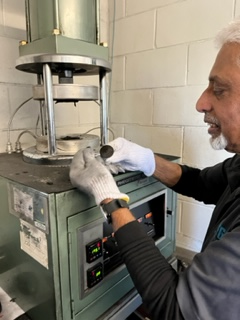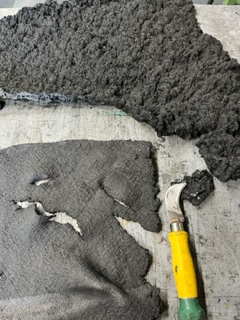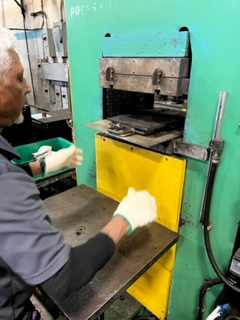COIL Stories
Windsor Industrial Development Laboratory:
R&D firm explores ways to reuse old tires, giving them a new life


Windsor Industrial Development Laboratory (WIDL) is a Research and Development (R&D) firm that offers various analyses for plastics and rubber materials. WIDL’s COIL Evolve project is looking at how to create new uses from scrapped rubber tires. The first step in the process is devulcanization of old rubber, which consists of breaking the chemical bonds between long rubber molecular chains, so it can be vulcanized into a new product again. Once ground rubber from a tire is devulcanized into a new compound, WIDL engages in the second step of compounding the devulcanizate to raise its mechanical properties. The final step is to mold the new compound formulated (mechanically improved devulcanized rubber) into an engineered rubber product like small solid tires for the mining industry, the focus of WIDL’s case study. This process greatly reduces the number of tires that go to landfill and increase the number of new products that can be made from recycled rubber.


The Impact
Turning waste into new inputs: The rubber industry is divided into two streams: tires and non-tires (all molded, extruded, or casted products). Since tires need to be made with both synthetic and natural rubbers, nylon, and steel wiring, they are rarely able to be recycled into new products. The process of devulcanizing tires enables them to be remade into rubber products.
How they made it work
The scope of the project and impact on the rubber industry has resulted in WIDL collaborating with a variety of partners like tire manufactures, rubber molders, tire recyclers (grinders), and tech companies to implement a proof of concept. The estimated value of this project is well over 10 million dollars and will provide a substantial reduction in both wasted and natural resources. WIDL is also investigating different polymer (rubbers and plastics) recycling opportunities in municipal waste streams. The process of devulcanization provides many opportunities for resources like these to be broken down and able to be used as new inputs. This further reduces strains on natural resources, logistics, and post-consumer operations.

